Project Self Worth
Rethinking Tangible Interaction & Student Experience
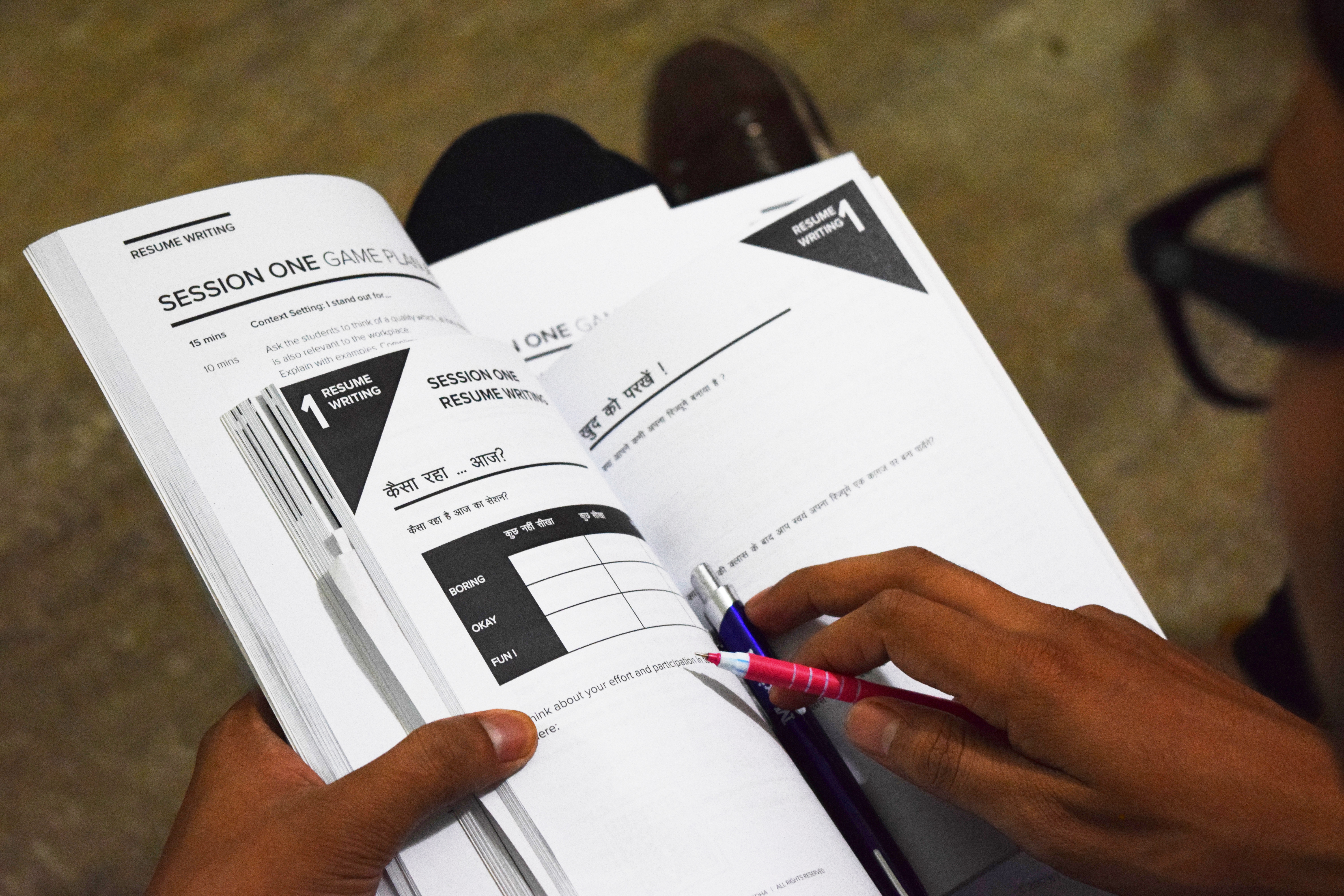
Duration
9 months / 2016 - 17
Position and Role
Willam J Clinton Fellow /
Design lead
Project Manager
Client
Medha
Support
Shivani Sharma
Project Tags
Client management, Project Scoping, Needs Assessment, Service Design, Capacity Building, Handover and Pilot
9 months / 2016 - 17
Position and Role
Willam J Clinton Fellow /
Design lead
Project Manager
Client
Medha
Support
Shivani Sharma
Project Tags
Client management, Project Scoping, Needs Assessment, Service Design, Capacity Building, Handover and Pilot
Medha Learning Foundation supports young students with employability through their after school training programmes.
This project re-designed Medha’s flagship training programme to fine-tune their offerings and elevate the learning experience of their students.
This project re-designed Medha’s flagship training programme to fine-tune their offerings and elevate the learning experience of their students.
This is a self-initiated project where as the only in-house designer, I was responsible for the entire project - from conception through design and implementation.
All the material within this section is copyrighted to Medha Learning Foundation
To maintain high-quality student experience in the absence of an in-house design team, it was important to create self-sustaining information loops such that back-end and front-end services could mutually benefit from each other.
This was achieved by inegrating back-end activities such as monitoring and evaluation and teacher trainings, and pairing them up with front end activities like teaching, student mentoring, and self-assessment.
Using only physical elements (no digital interventions), a new set of tools and artefacts were designed to deliver a comprehensive kit.
Using only physical elements (no digital interventions), a new set of tools and artefacts were designed to deliver a comprehensive kit.
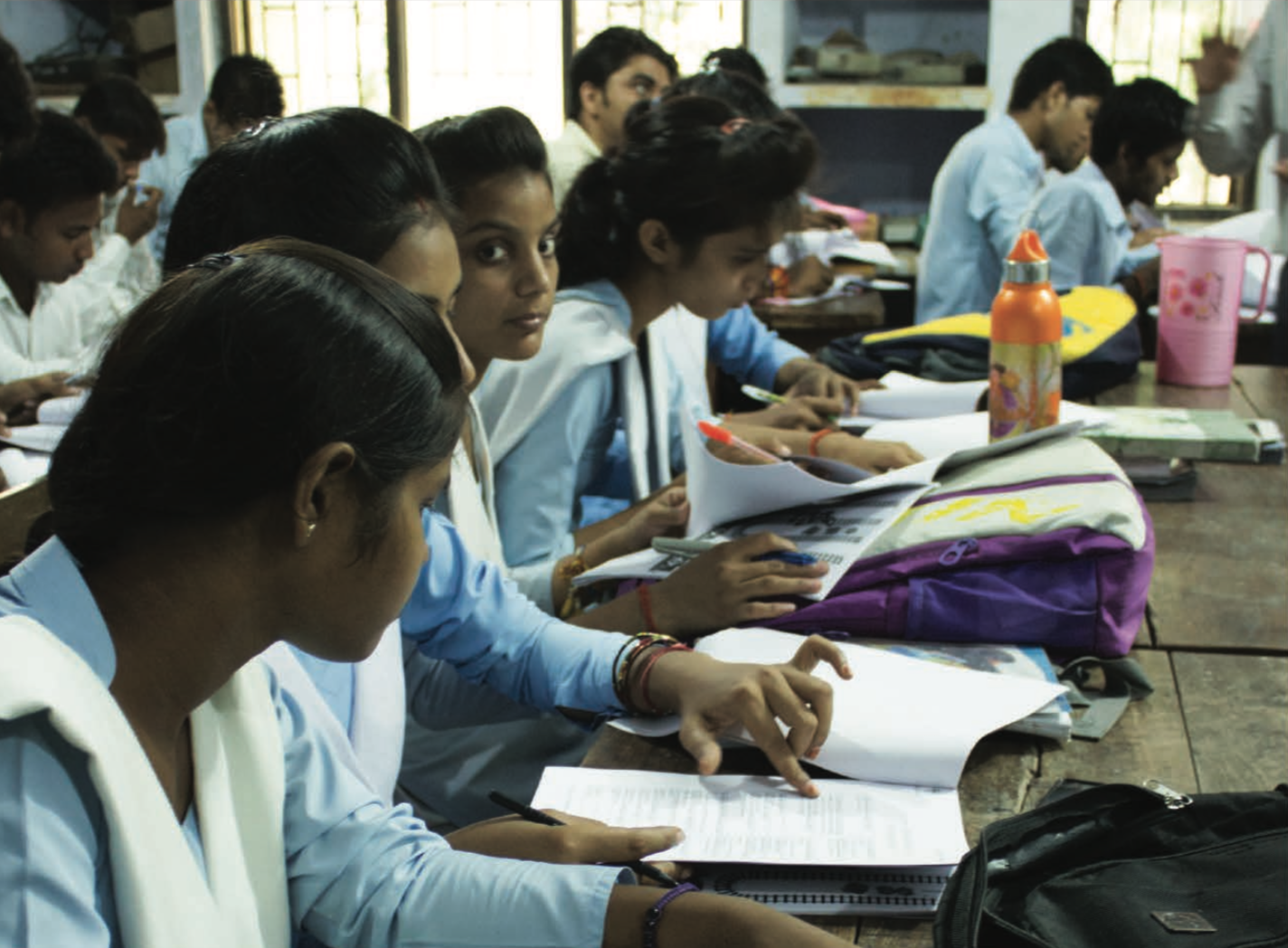
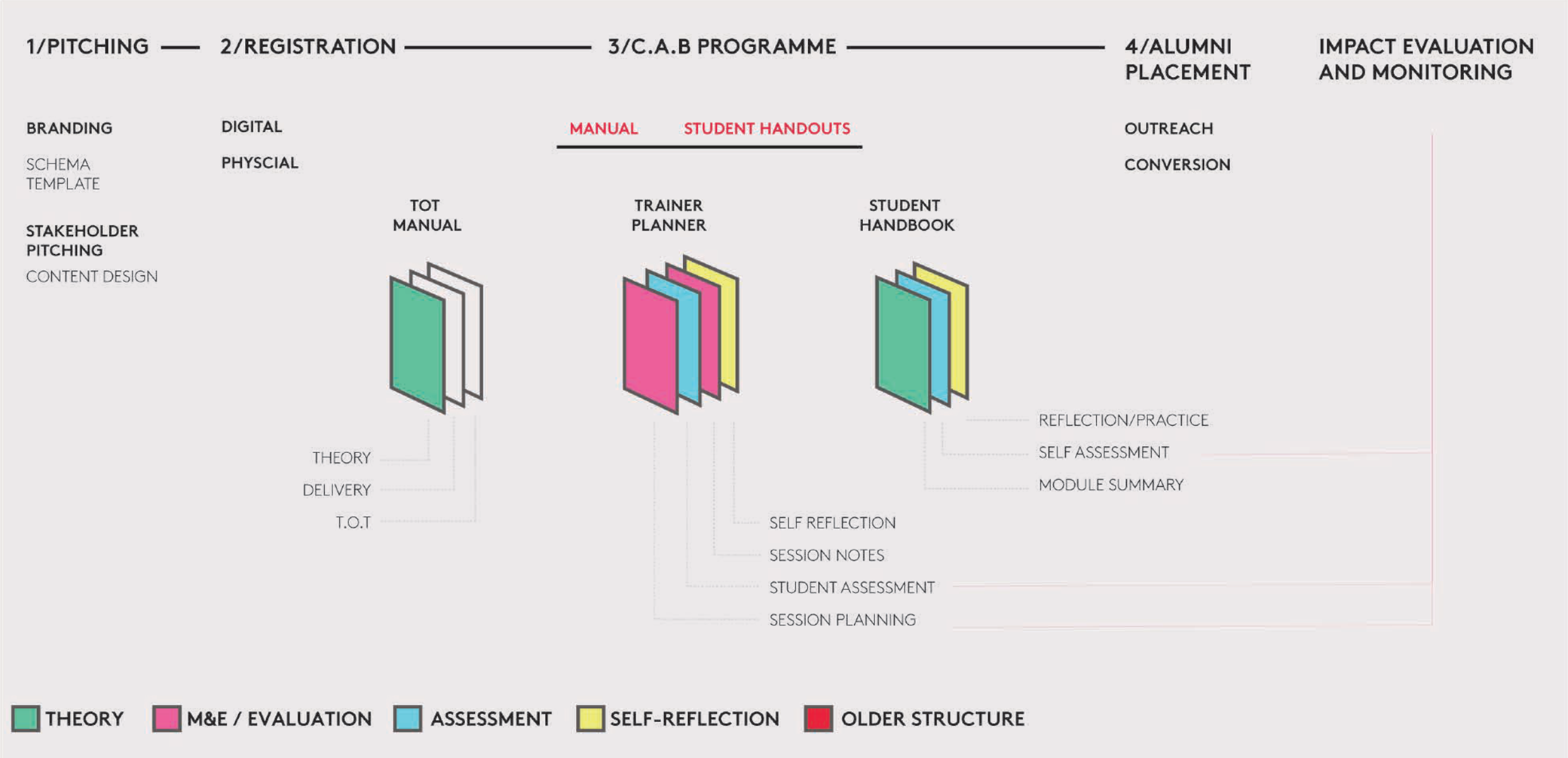
The re-designed artefacts support new ways of teaching and reflecting, creating conditions for better follow-through on students’ learning journey.
The incoming batch of teaching recruits for 2017-2018 were trained on the re-designed tools and artefacts.
All material was handed over for a planned state wide roll-out in Aug 2017, set-to reach more than thousand students in the north Indian state of Uttar Pradesh.
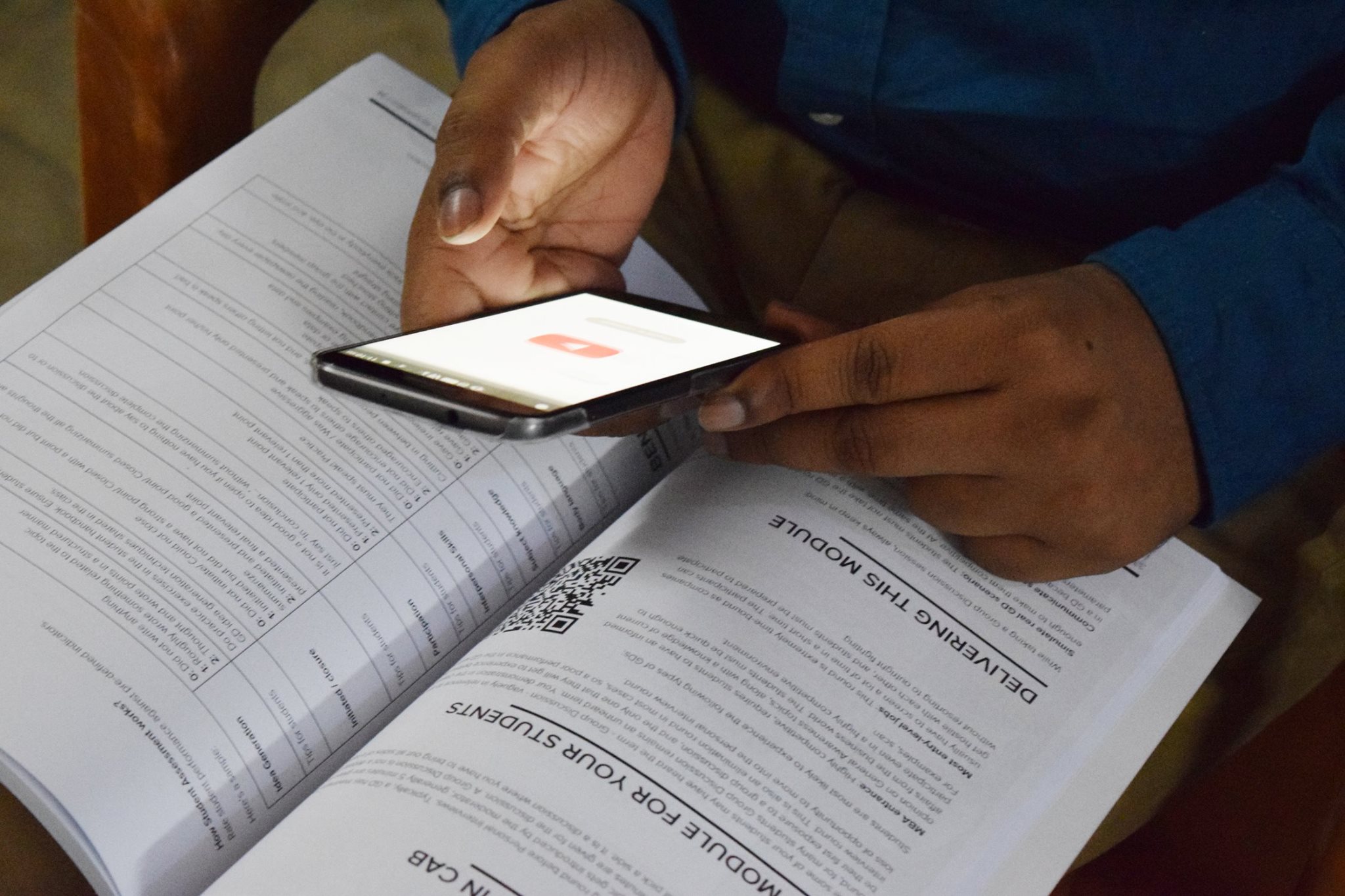
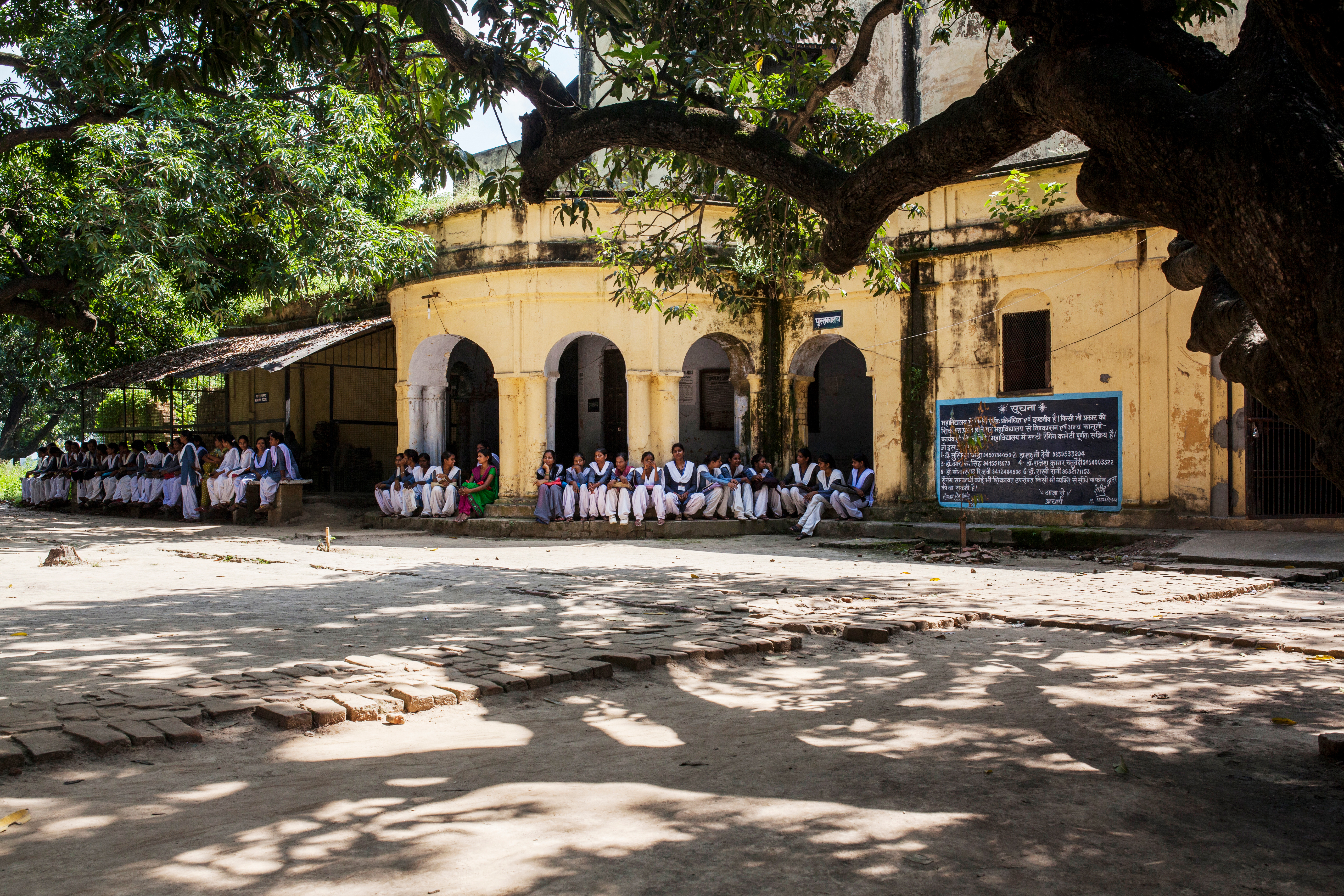
Process
1/ The World of Medha
2/Getting everyone on-board
3/ Passing the mic
4/ Making Sense
5/ Testing waters
6/ Make, Validate, Produce
7/ Handover and Training


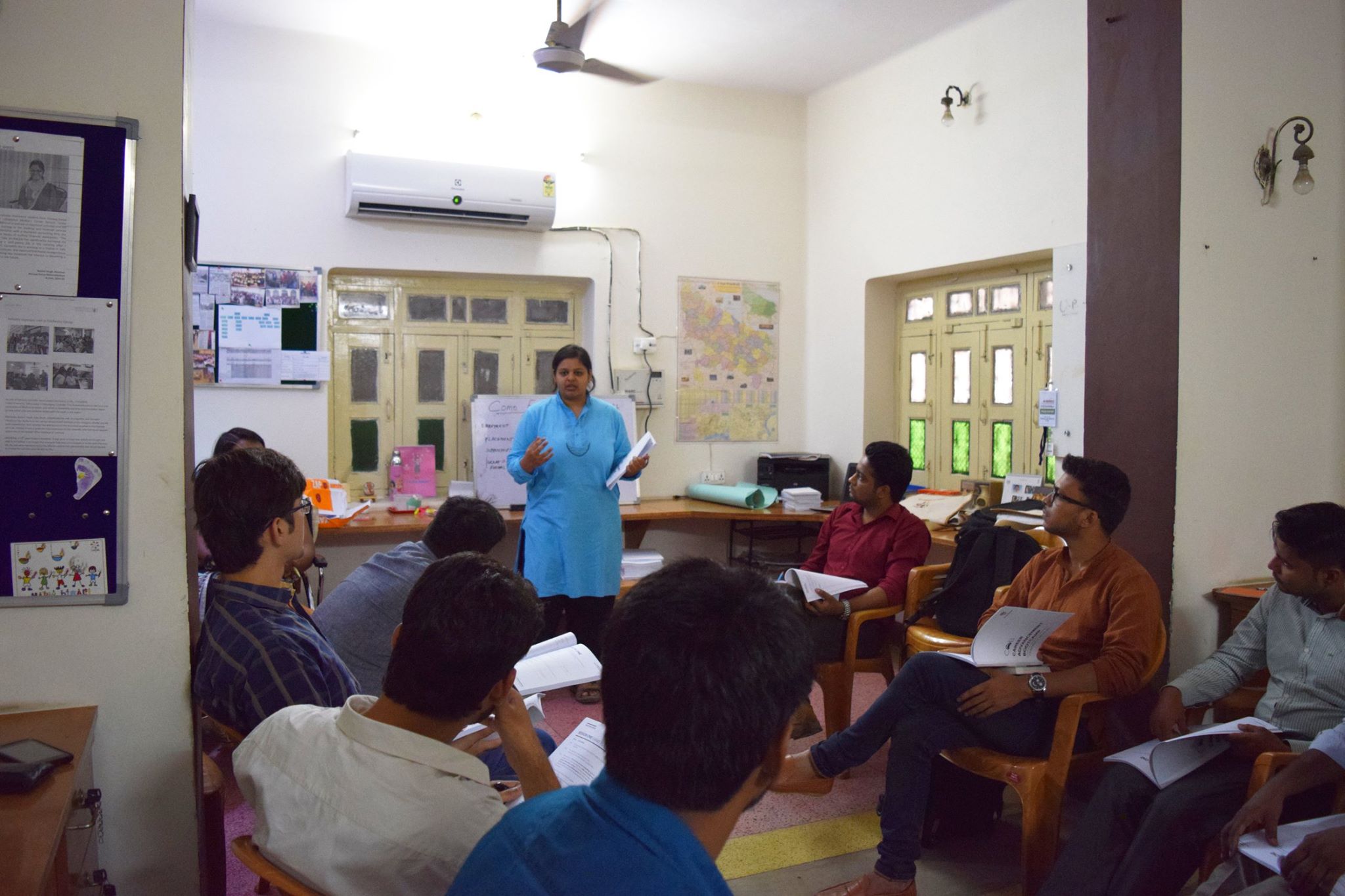
1/
The World of
The World of
Medha
The AIF Clinton Fellowship matches fellows with non-for-profit organisations based on their needs and interests.
As the only in-house designer, I was stationed at Medha Learning Foundation, a non-for-profit organisation which supports young students with employement and employability after school.
As the only in-house designer, I was stationed at Medha Learning Foundation, a non-for-profit organisation which supports young students with employement and employability after school.


2/
Getting everyone
Getting everyone
on-board
Career Advancement Bootcamp (CAB) is Medha’s flagship program that delivers employability program, improving career opportunities for youth.
The first step involved doing a quick research on stakeholders, both inside the organisation and outside.
The first step involved doing a quick research on stakeholders, both inside the organisation and outside.
How is CAB delivered?
Who are the stakeholders?
At the organisation’s side, four departments were involved and responsible for delivering the training program.
At the recieving end of the programme, there were three users groups: employers, students and their institutions.
Who are the stakeholders?
At the organisation’s side, four departments were involved and responsible for delivering the training program.
At the recieving end of the programme, there were three users groups: employers, students and their institutions.

Passing the Mic: Listening to Students
There is a reason why a comprehensive research on students’ needs was not done before.
Students are one of the most diverse groups, with different language and comprehension abilities, gender biases and varied in aspirations.
Students are one of the most diverse groups, with different language and comprehension abilities, gender biases and varied in aspirations.
“Trainers know what the students want but we’ve actually never asked them.”
Content Manager, Medha
Toolkit for Research
A 90 minute long activity was designed using a picture based toolkit.
This helped students willingly answer reflective questions without being biased or feeling incapacitated by lack of language skills.
With this, we were able to reach 300 students across 7 geographies. This helped us form a comprehensive overview of Medha’s student demographic.
A 90 minute long activity was designed using a picture based toolkit.
This helped students willingly answer reflective questions without being biased or feeling incapacitated by lack of language skills.
With this, we were able to reach 300 students across 7 geographies. This helped us form a comprehensive overview of Medha’s student demographic.
4/
Extracting key variables from within one geography and comparing them across all for each data set led us to micro and macro themes.
Making Sense
Extracting key variables from within one geography and comparing them across all for each data set led us to micro and macro themes.
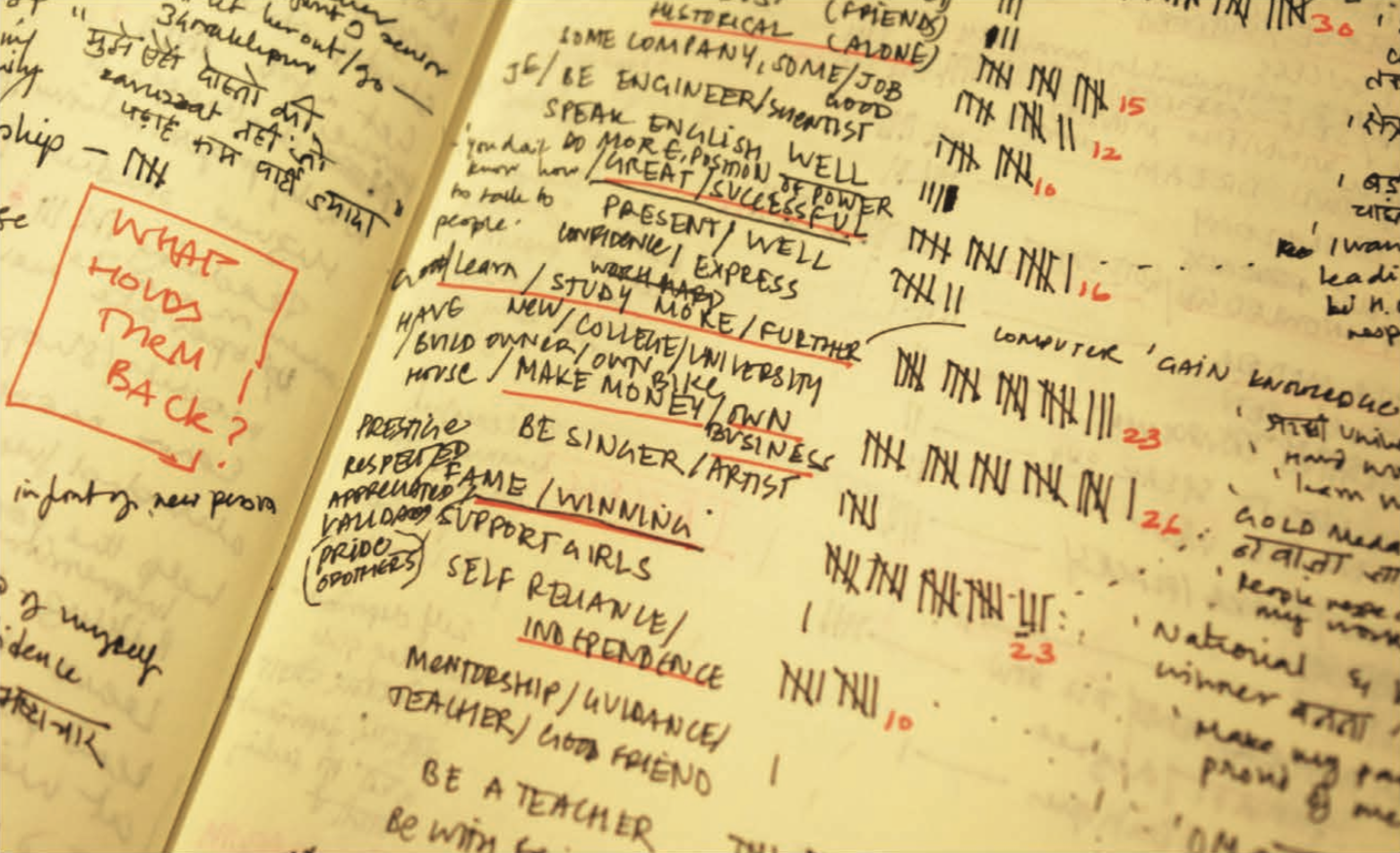
In order to re-affirm the sense of self-worth and self esteem in
students, the vision of self-worth needs to transition
from outward looking or acquired by external
validation, to internally acquired by self-reflection,
self-affirmation and self-belief.
Employees at Medha participating in affinity mapping exercise.

5/
The content distribution was re-designed keeping in-class experience at the center.
Testing Waters
The content distribution was re-designed keeping in-class experience at the center.

The existing collaterals were redesigned into three seperate
artefacts:
1. A Training of Trainers (ToT) manual for referencing and teaching preparation work
2. A Trainer Planner to support trainers during in-class delivery
3. A Student Handbook for students to use during classes and for reflection and individual jounaling outside the class environment.
6/
After first few trials, the new restructured collaterals were internally tested by department responsible for students’ training.
After many rounds, finalised collateral kit was printed and tested.
Make, Validate, Produce
After first few trials, the new restructured collaterals were internally tested by department responsible for students’ training.
After many rounds, finalised collateral kit was printed and tested.


7/
Three weeks of teach backs, reflection sessions and mock-classes were set-up in the month of June.
Once the training was over, this new trainer cohort at Medha would then be assigned their very first CAB batches when the colleges re-open in August 2017.
Handover and Training
Three weeks of teach backs, reflection sessions and mock-classes were set-up in the month of June.
The incoming batch of teaching recruits for 2017-2018 were trained on the re-designed tools and artefacts.
Once the training was over, this new trainer cohort at Medha would then be assigned their very first CAB batches when the colleges re-open in August 2017.
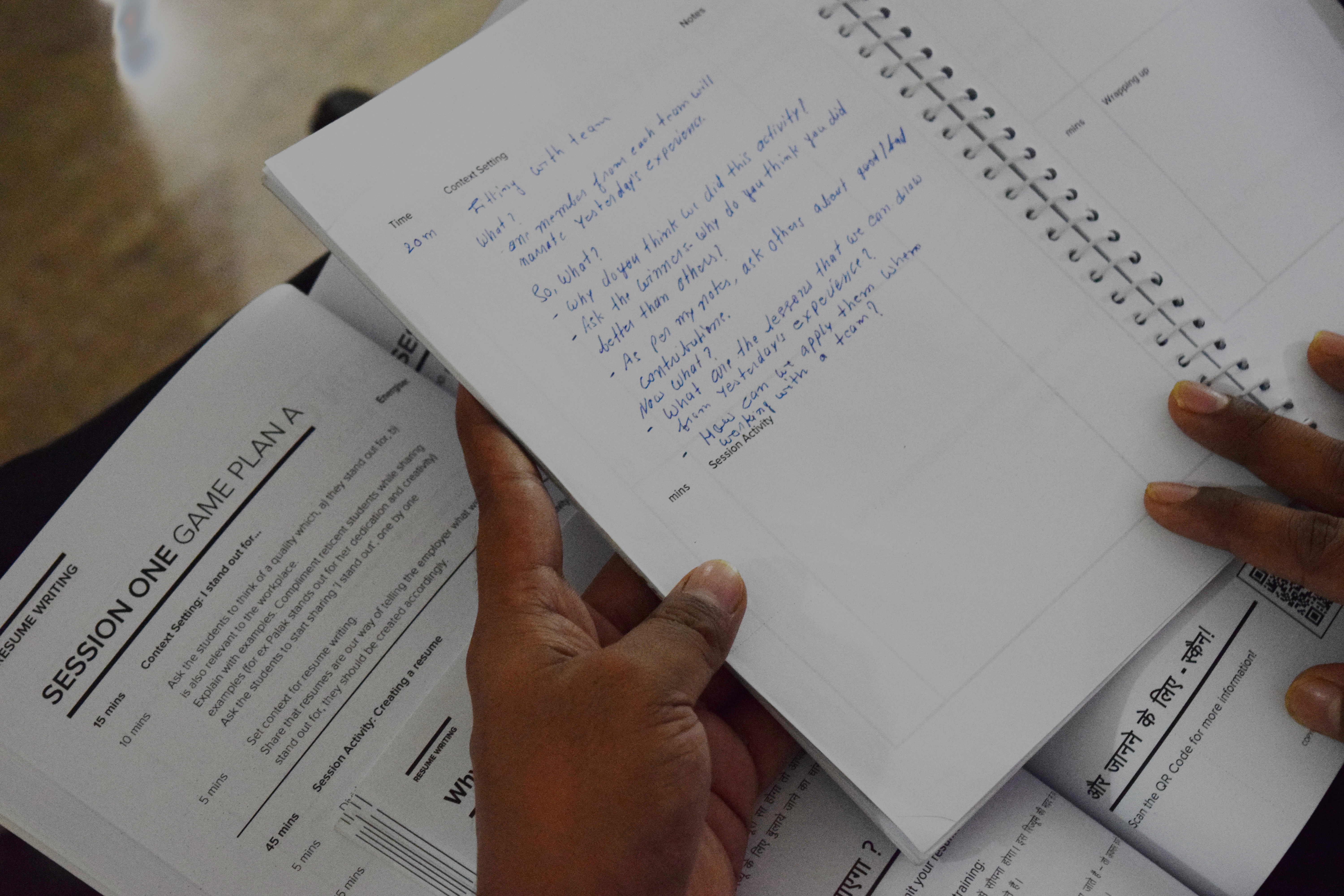


Photo credits in this series:
Preeti Thapa, Shivani Sharma
Preeti Thapa, Shivani Sharma